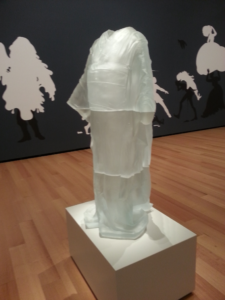Transcutaneous Electrical Acupoint Stimulation for Improving Postoperative Recovery, Reducing Stress and Inflammatory Responses in Elderly Patient Undergoing Knee Surgery.
Kristen Sparrow • April 04, 2020


Nice study showing that not only did the group receiving acupuncture do better on a quality of life scale post surgery, but that their stress markers and inflammatory markers were lower. It was a simple protocol, also. 30 min St36, Spl6, LI 11 give 30 min before epidural and then post op.
Transcutaneous Electrical Acupoint Stimulation for Improving Postoperative Recovery, Reducing Stress and Inflammatory Responses in Elderly Patient Undergoing Knee Surgery.
Abstract
Transcutaneous electrical acupoint stimulation (TEAS) is a form of acupuncture treatment that applies electrical stimulation on specific acupoint through cutaneous electrodes. This technique has been used for perioperative anesthesia management as part of after surgery recovery. However, to date, limited data are available for using the TEAS for postoperative recovery in elderly surgical patients. We conducted this prospective randomized sham-control trail to evaluate the efficacy of TEAS in a group of elderly patients receiving knee surgery under epidural anesthesia. 52 subjects were assigned to either the experimental group (Group E) or control group (Group C). The patients in Group E received TEAS at zusanli (ST36), sanyinjiao (SP6), neiguan (PC6), and quchi acupoints (LI11) 30min prior to the epidural anesthesia and postoperative day 1 and 2, while patients in Group C received sham TEAS on the same acupoints for 30min same as those of Group E. The primary endpoint was the Quality of Recovery-40 questionnaire (QR-40) and the secondary endpoints were the biomarkers level of stress and inflammatory responses and visual analogue scale (VAS). A one-way ANOVA (SNK method) was used in statistic, and p<0.05 is considered to be statistically significant. Our data showed that the QoR-40 was significantly lower in Group C than that in Group E at postoperative day 1 (p<0.05); Similarly, Cortisol (COR), Adrenocorticotropic Hormone (ACTH), and C-reactive protein (CRP) were significantly lower in Group E than those of Group C at postoperative day 1, 3, and 7 (p<0.05), while the neutrophil/lymphocyte ratio (N/L) was lower in Group E than that in Group C at postoperative day 1 and 3 (p<0.05). Our results showed that perioperative TEAS administration is able to facilitate the development of postoperative recovery of elderly patients, especially at the early stage after surgery. The reported results are likely to be mediated by the reduction of surgical inflammation and perioperative stress response.
KEYWORDS:
Acupuncture; Elderly Patient; Inflammatory Response; Knee Surgery; Postoperative Recovery; Stress Response; Transcutaneous Electrical Acupoint Stimulation (TEAS)

